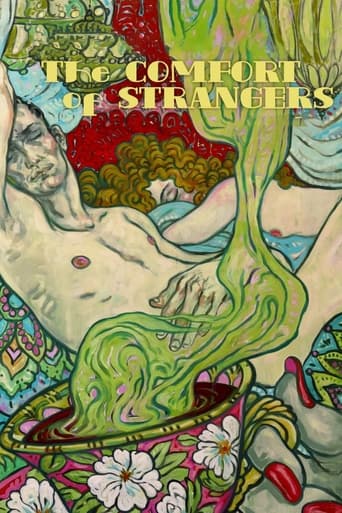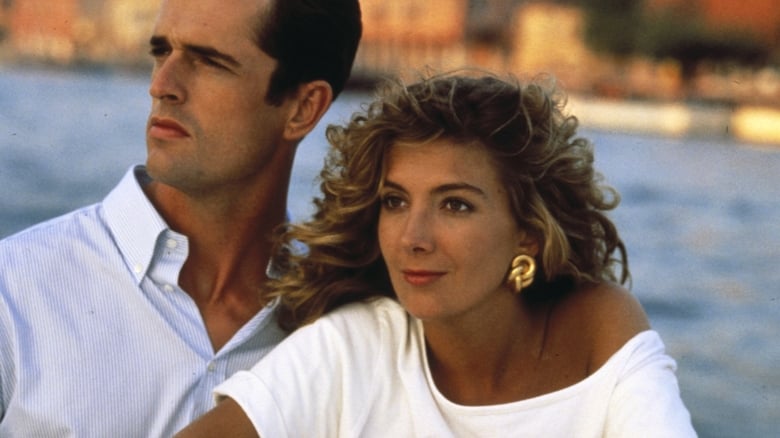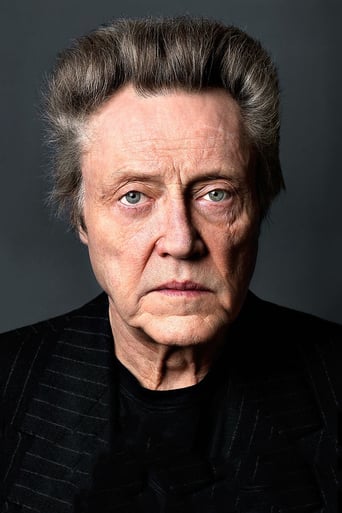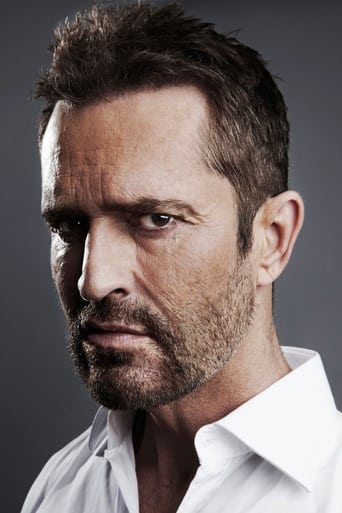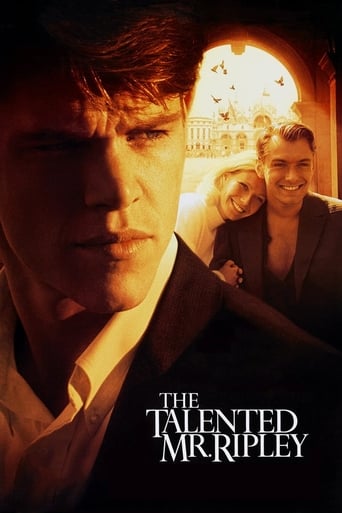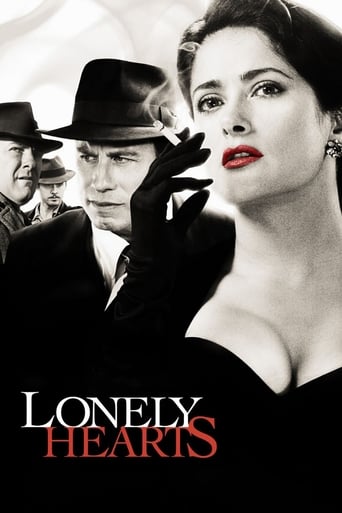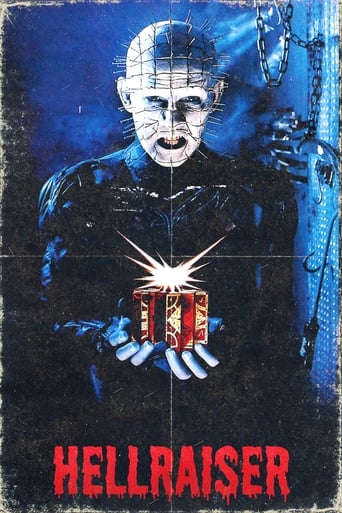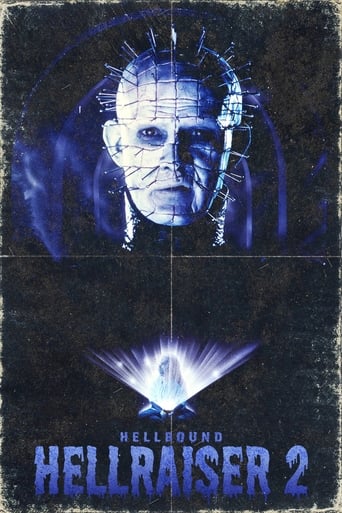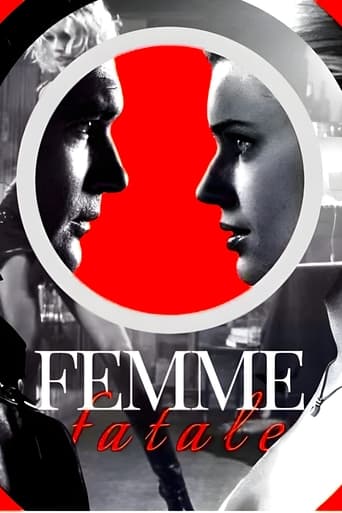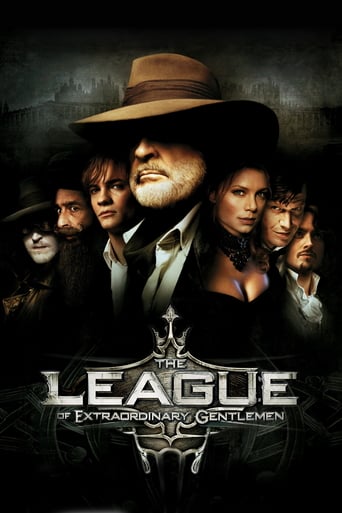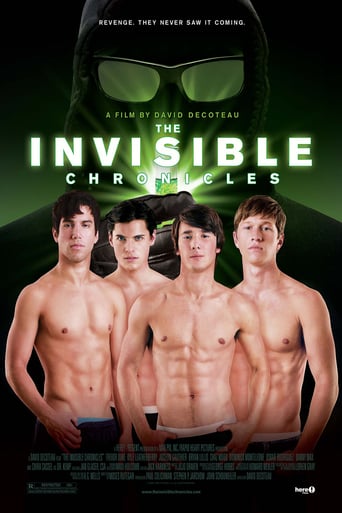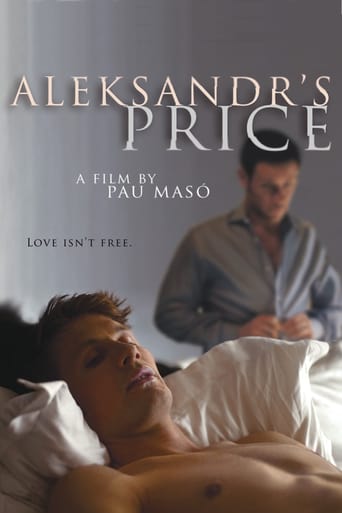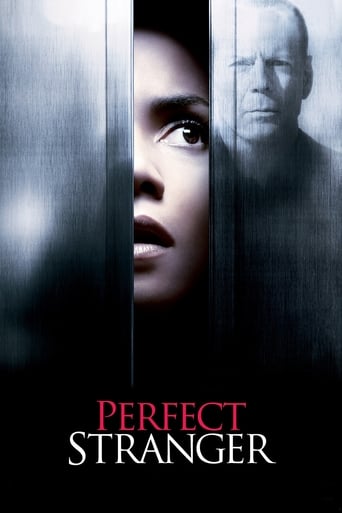The Comfort of Strangers (1991)
An Italian diplomat's son follows and seduces English lovers in Venice.
Watch Trailer
Cast


Similar titles
Reviews
Such a frustrating disappointment
Absolutely the worst movie.
Very good movie overall, highly recommended. Most of the negative reviews don't have any merit and are all pollitically based. Give this movie a chance at least, and it might give you a different perspective.
This is one of the best movies I’ve seen in a very long time. You have to go and see this on the big screen.
I saw this film on the strength of an NPR review. This was decades ago before I had even heard of Rupert Everett or Helen Mirren. When I came across something (I forget what) that said Helen Mirren was in the movie, I had to go rent it and watching again because I couldn't figure out who her character was. It was such an un-Helen Mirren-esque part but she stilled nailed it. And the movie has that car wreck vibe - you don't want to watch it play out, but you can't help yourself. Definitely one of my favorite movies.
Ever wonder what it would be like to experience Paul Schrader's most famous creation, Travis Bickle, from the outside, only from the perspective of others just as unhappy and almost as weird, albeit more passably 'normal'? Look no further. Penned by the truly impressive one-two punch of Atonement's Ian McEwan (novel) and Harold Pinter (screenplay), The Comfort of Strangers is a haunting, eerie tale of lurid sexuality and obsession, the fallout of familial trauma, and the noxiously addictive nature thereof to bystanders who may not be as innocent as they seem. It's not always an easy watch (no straightforward romance involving Christopher Walken is likely to be). It's liable to leave a thoroughly unpleasant taste in the viewer's mouth, both from its sordid tale of broken humans, and the inconclusive ambiguities therein. But, like many of its thematic and spiritual filmic siblings (Don't Look Now; Last Tango in Paris), which, admittably, the film falls just short of matching up to, there's gruesome beauty to be seen therein, making it a dark but deceptively compelling watch. Any audiences familiar with Pinter's writing will recognize how much he treats words as placeholder artifice, with the deeper truth lying behind non-sequiturs, and, especially, what lies unsaid. He excels at doing so here. For a film that, plot- wise, reads as three successive dinner conversations, dialogue is characteristically sparse, and generally more obfuscating than illuminating. Take Walken's recurring monologue: "My father was a very big man. And he wore a black moustache. When he grew older and it grew grey, he coloured it with a pencil. The kind women use. Mascara." Initially, it's used as a non-sequitur, or social stalling, but every time it's reiterated, each individual word is shown to be essentially deliberate, and tiny, nearly imperceptible character beats (monolithic but paradoxical patriarchy, homophobia, and latent, insecure violence) are unspooled, as if picking at a thread to the point of gradually unravelling a sweater. It's a slow-burning story, and one that certain viewers not as active in inferring subtle character motivations might grow weary of. Regardless, Schrader crafts an atmosphere of supreme decadence and unease, with Dante Spinotti's cameras creeping through the smoky opulence of Venice's back alleys and canals like Nosferatu preparing to pounce on an unsuspecting victim. You almost wish Schrader had pushed things to an even more memorably expressionistic and transcendental level (as someone like Scorsese or Milos Forman might have), but Angelo Badalamenti's exceptional musical score works wonders in sounding classically elegant, yet just subtly discordant enough to make the hairs on the back of the viewer's neck stand up. There's a perennial feeling throughout of a painstakingly laid out trap preparing to be sprung, and the waiting, no matter how much Baroque sightseeing there is to be done, is increasingly agonizing. The central quartet of cast are the binding agent which consolidate all the film's stylistic flourishes into a monstrous symphony, all perfectly in synch with the film's tone and unconventional emotional arc. Natasha Richardson and Rupert Everett are both spectacular as the young English couple travelling (or returning, as we're continually reminded) to Venice to rekindle their passion and contemplate marriage. Both deftly convey the nuances of ennui without overplaying, and, in their mutual, unexpected surge of passion, let slip essential details of far more detailed and grim characters beneath their beautifully disinterested exteriors. Still, the juiciest roles are bequeathed to Christopher Walken and Helen Mirren, and the two live up to the challenge - both are superbly charismatic and unnerving, as well as essentially human, rather than caving to the temptation to inflate their roles into Hannibal Lector human cartoons. Walken's fusion of silky, debonair, laconic charm and demented, inhuman underbelly has never been put to such good use, his every line a purr of concealed lust or threat, while Mirren, pristinely teasing ambiguous notes of either primal fear or psychotic madness beneath her tightly wound housewife exterior, manages to make an equally grating impact with less screen time. There's a theatrical quality to the airtight chemistry the four share, and even as the material fails to come to a climax that properly satisfies after the operatic buildup, they're so riveting you'll be too distracted to sweat the semantics. A somewhat forgotten gem of skin-crawling European lust, The Comfort of Strangers may not quite stretch to the level of timeless classic, but it lingers on the viewer for days afterwards, like a sticky, shameful hangover. Whether to drink in the sumptuous Venetian scenery or the immaculate performances, Schrader and Pinter's Gothic, fatalistic romance is worth taking in on a muggy, cloudy summer night. As Richardson and Everett are sucked in by Walken and Mirren, like spiders jovially binding guests in their web, taking in The Comfort of Strangers can only end in discomfort, but the proceedings are too sickeningly infatuating to escape. -8.5/10
Although the actors do play very well and give a marvellous performance, I can say that was all the good about it. In fact, I decided to buy the movie for their sake: Helen Mirren, Rupert Everett, Natasha Richardson,who are brilliant actors.Unfortunately, in our country ratings are not always accurate and for this one definitely was not.It is not simply a thriller, it is horrifying, and brutal, what is more, sick. I believe viewers should be warned in advance because not everybody has the stomach for it. So now I am spoiling it, understandably, and for a good reason. After all it is not a war movie/ a horror movie where you can expect a few throats cut. And that is exactly what you get, all of a sudden, unexpectedly. Without any good reasoning or a message to tell like in other psychologically much better written thrillers.(e.g. The Devil's Advocate) All you read about " The Comfort of Strangers" is how full it is with lust and reviews concentrate on the British couple's relationship, the chilling ( and boring) music, the wonderfully made images ( again way too boring , like a still of a picture sometimes). No mention of the very violent, direct throat-cutting scene in the end.I actually loved Rupert in it, his character, the way he was willing to do everything for his girl, but I believe he should have put up a good fight at least, not wait for his killing like a lamb. Maybe, we can say it was a nice depiction of British reserve, politeness and endurance, which obviously was in great contrast with the sadistic man's selfish love. But I guess it could have been shown in a different way, in a much better way.Also, I am not happy it was filmed in Venice. The novel didn't even mention the name of the town, as far as I know originally it was just "somewhere in Europe". Well, I have never been to Venice but after watching this film, I don't think I ever will. And not because of the story. Mostly because of the atmosphere and the feelings that the pictures created in me, the colours, the music, the way it was made. If that was the aim of filming it there, (i.e. decrease the number of tourists visiting Venice), I can say it was definitely achieved in my case so you can count one would-be tourist out. At least for a good few years until I can forget this eerie movie experience...And for that I am more than sad.
This served as both a tribute to star Natasha Richardson (whose life was tragically cut short last week at just 45 years old) and a belated one in honor of celebrated playwright Harold Pinter (here functioning as a screenwriter adapting somebody else's novel). Considered a psychological thriller although, for the most part, it plays like a drama with erotic undertones my decision to watch it on the day allotted to the former genre certainly paid off given the shocking twist ending. Being set in Venice, it also evoked strong memories of my memorable fortnight's stay there for the 2004 Film Festival. The film is arty and deliberately-paced, but intriguing (if hardly original) and exceedingly well-cast: Christopher Walken (often resorting to hamminess elsewhere, he is quietly chilling here), Richardson (beautiful, obviously talented and truly the image of her mother, Vanessa Redgrave) and Rupert Everett as the couple he ensnares (for kicks) and Helen Mirren as his seemingly reluctant but eventually revealed to be just as ruthless wife/accomplice. Director Schrader, of course, had started off as a writer himself and he wisely leaves the actors (and, by extension, the script) to their own devices. To get back to Richardson's death for a moment, a number of striking parallels are to be found in the film: the central couple are on a vacation (which is what she was doing at the time of her untimely demise), her character has two children (as she did in real-life), and the Walkens intended leaving Venice for Canada (the place of Richardson's fatal skiing accident)!!

